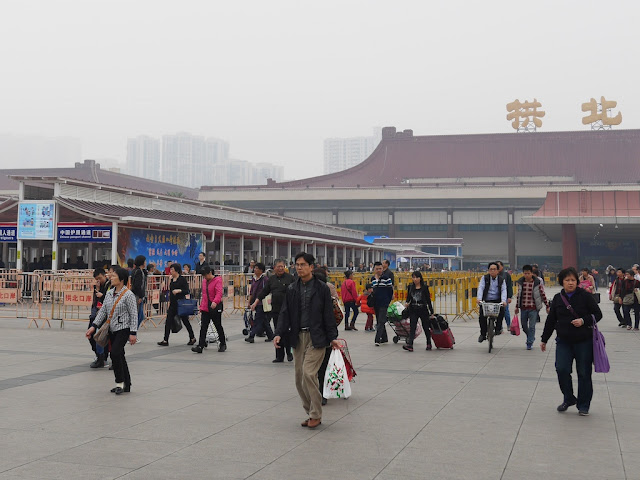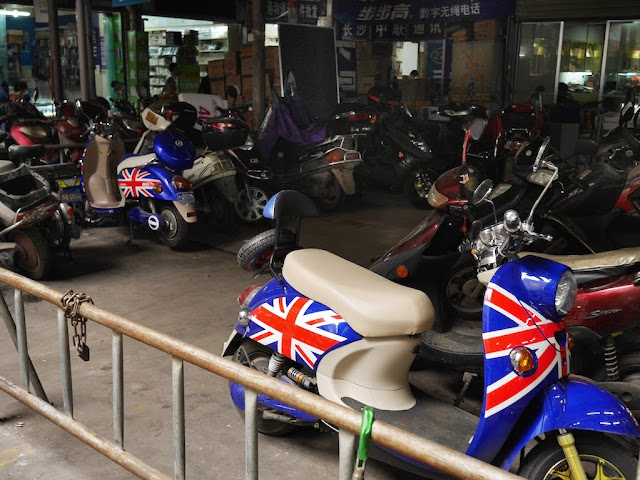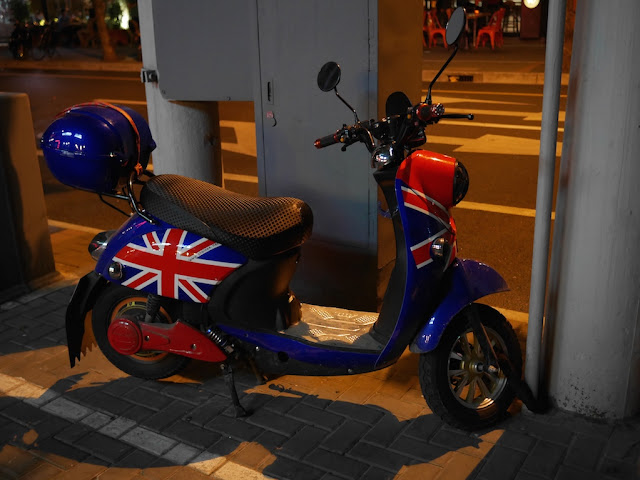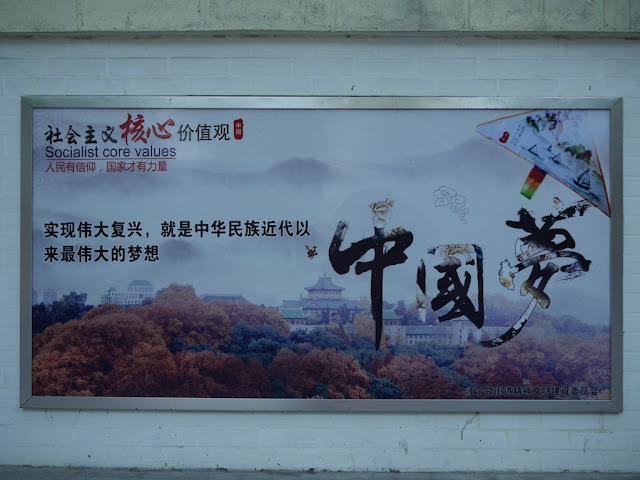 |
| People in Zhuhai, China, walking away from the border gate to Macau, China (February 2015) |
The China National Tourism Administration (CNTA) claims mainland Chinese citizens traveled "overseas" more than 100 million times last year, the most ever. This statistic is often mentioned in media reports and commentary regarding growing opportunities for countries to attract international travelers from China and their money (examples from
The New York Times,
Bloomberg Business,
Xinhua, and
Quartz). But numbers from China often come with big caveats which significantly impact their meaning. This one is no exception.
To be clear, the statistic does not cover citizens of Hong Kong or Macau, both Special Administrative Regions where a number of rules and regulations differ from the rest of China. One possible reason for omitting the two cities is if CNTA included them it would be at a loss to explain why it wasn't also including Taiwan. The People's Republic of China claims Taiwan but doesn't currently control it. Presumably CNTA doesn't have the same access to Taiwan's travel data. So clumping Taiwan, Hong Kong, and Macau together, a common thing to do in China, helps CNTA avoid highlighting a delicate issue. And there can be meaningful reasons for not including data about Hong Kong's and Macau's citizens, including many countries making it easier for them to visit by having
more generous entry rules for them than for citizens of mainland China.
Less mentioned and more significant than the statistic
excluding people traveling
from Hong Kong and Macau is it
including people traveling from mainland China
to Hong Kong and Macau, where mainland Chinese need a special permit to visit. This means when a Chinese citizen living in Shenzhen travels to Hong Kong it could count as "overseas" travel despite the cities sharing a
border easily crossed by foot and both undisputedly being part of the People's Republic of China. The same holds true for
Macau, which borders Zhuhai.
I can't find a breakdown of the statistic for all of 2014, which was 109 million, on CNTA's website. However, in December last year CNTA provided additional details for the year's first 11 months when the number had already surpassed 100 million.
According to CNTA, of those more than 100 million "outbound tours" from January through November last year:
Overseas tourist destinations of Mainland Chinese citizens are: Asia (89.5%, in which Hong Kong, Macau and Taiwan account for 70.4%), Europe (3.5%), Africa (3.0%), Americas (2.7%), Oceania (1.1%), and other regions (0.2%).
Reported elsewhere,
Taiwan had 2.8 million mainland Chinese tourist arrivals for all of last year. Hong Kong and Macau clearly account for a large majority of the trips. Even in the most extreme case, the final numbers for the year could not change this point.
So indicating Chinese citizens made 100 million "overseas" or "international" trips is highly misleading at best. This doesn't mean there aren't growing opportunities for countries such as the U.S. to attract international travelers from China or influence them to spend more money. I think there are. But citing the 100 million statistic isn't usually going to be a great way to make that case.
















